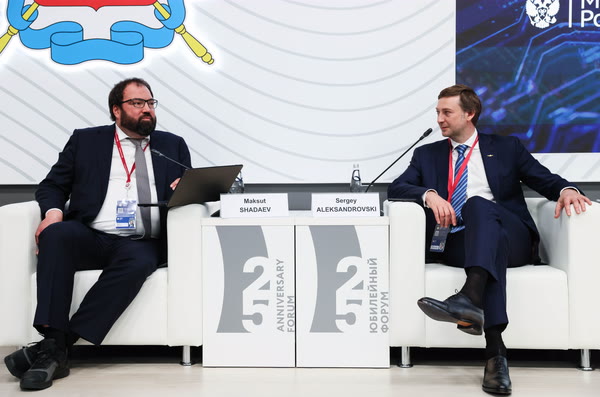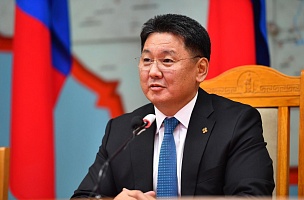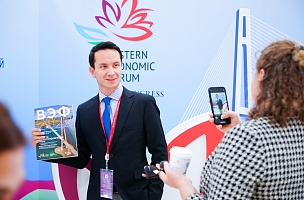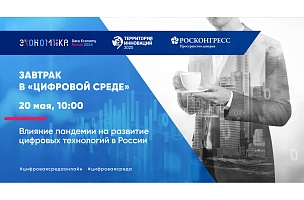Key conclusions
“We will have 35,000 companies accredited by the end of the year, Russian companies on our list, in the register. They’re not just coming for the incentives, and the number of incentives is totally unprecedented, from interest rate subsidies for turnover and, of course, everyone’s favorite benefit – deferment from the army – which we have, well, and, of course, various tax breaks. But we understand that the conditions for running an IT business in Russia are much more favorable than anywhere else in the world, and we generally expect the industry to mobilize now and react quickly. It is beginning to do so already, but probably not at the pace we would all like, where we wave the magic wand and there are substitutions for everything. There is good news that a huge niche has opened up, opportunities for our IT specialists to occupy this niche, but you have to understand that the window of opportunity is rather small,” Dmitry Chernyshenko, Deputy Prime Minister of the Russian Federation.
PROBLEMS
“Thirteen areas of focus (manufacturing, public administration, healthcare, education, science, ecology and environmental management, agriculture, social services, construction, transport, the fuel and energy complex, urban housing utilities, financial services – Ed.) help us cover all of the areas in full. This is basically the environment our IT industry has to work in, and it is a huge place to work, because on average, functional import substitution, that is, where systems have replaced a hundred percent of what needs to be replaced, has only happened in about a third of all solutions. In other words, 70% of the market is still waiting for us. Obviously, our domestic market is insufficient in itself to recoup direct investments in development, so on the one hand, we will support this financially, development and implementation, and on the other hand, we certainly expect very strong exports to foreign markets,” Dmitry Chernyshenko, Deputy Prime Minister of the Russian Federation.
“You (Minister of Digital Development, Communications and Mass Media of the Russian Federation Maksut Shadayev – Ed.) have predicted that by the end of the year 35,000 companies will be registered in the register of Russian IT companies, while we have only 14,000 products in the register of domestic software, which is half as many as the IT companies. And at the same time, these 14,000 products are made by 4,000 suppliers in total. That is, everyone is rushing there for the incentives, and there are deferrals from the army and everything else, but to say that they are making products that will flood the market, well, it really hasn’t come to pass,” Dmitry Chernyshenko, Deputy Prime Minister of the Russian Federation.
“The biggest challenge we face is precisely in terms of technological systems. Generally speaking, the Rosseti Group is [...] 15 network companies. For more than 15 years, each of these companies has been doing its thing and implementing completely different systems because they are separate legal entities. At the moment, we have more than a thousand different technological systems, including domestic systems, Western systems, systems of major manufacturers, General Electric, Siemens, ABB, and so on, as well as smaller companies, and our own developments. In other words, there are thousands of different technological systems that for the most part work with each other within a single subsidiary company, but do not work within the entire group of companies. And the main task for us now, and this is our development [...] of an integration system, so to speak, a service bus, PC-20, on the basis of which we want [...] all our technological systems from all of our subsidiaries to come together in a service bus, so that at least we understand what it is to get all this data and then transfer it to a domestic solution and implement this system,” Andrey Ryumin, General Director, Chairman of the Management Board, Rosseti.
“The thing we’re all stressed out about, of course, is how expensive the market for IT services and IT solutions is getting now. Obviously, everyone has rushed into import substitution, we need IT specialists, we need solutions. This is a huge problem right now – keeping the cost at some acceptable level. I would really hate to see Russian IT solutions exceeding similar western solutions in terms of cost in the process of substituting for imports. I would like to draw your attention to this, and the Digital Ministry as well,” Sergey Aleksandrovskiy, General Director, Aeroflot.
Areas of critical importance for companies still forced to use of foreign software
“Rosagro is a highly automated company, we believe, and less than 50% of our solutions are Western, or foreign solutions in general. Of the most important ones, I should probably say, well, apart from telecommunications and service equipment, we have a medical meat processing system. In this case, we are totally dependent on European companies, and this is a critical point. So far, we don’t know what we’d do if something happened,” Maxim Basov, Chairman of the Board of Directors, ROS AGRO PLC.
“We are the world’s largest user of SAP. We have the most comprehensive and largest implementation in the world in crop production. And here, we believe that in the current situation, however difficult it may be for us, we will have to switch to Russian solutions, although no such Russian solution exists at present. But it could probably be created, the closest thing to it is 1C, but there is still a lot of work to be done there,” Maxim Basov, Chairman of the Board of Directors, ROS AGRO PLC.
“We’re regarded as world leaders in crop production. We were supposed to start, and we did a year ago, to tackle the third stage of automation, full robotic automation. And everything we wanted to do – robotic automation – it was built entirely on interaction with world leaders. We’re talking about American companies, European companies, Chinese companies. [...] Russia simply doesn’t have any solutions of this kind. And now, for obvious reasons, our work has come to a complete standstill,” Maxim Basov, Chairman of the Board of Directors, ROS AGRO PLC.
“Our main task [...] is to ensure product stability, and software import substitution issues should be serving this end in the first place,” Alexey Kornya, Executive Director, Deputy General Director, Magnit.
“Magnit is a fairly unique company [...] in the sense that practically the entire IT business landscape is built on domestic solutions. [...] This is also the legacy of Sergei Nikolayevich Galitsky to a large extent. You have to understand that everything from cash registers to warehouse management, to replenishment and auto-ordering systems, to corporate systems is built on our solutions, pretty much at the heart of everything is 1C. I think that ... it’s the biggest 1C solution in the country because the volume is very high. Generally speaking, 70–80% of the entire IT landscape runs on domestic software. Nevertheless, first of all, two years ago we started a project to migrate to SAP because for our scale of business, which is 370,000 employees ... 27,000 shops, 15 million customers a day, of course, a 1C solution is in a bit of a different class, that is, for a slightly smaller business it is probably workable, but for this scale of business it is less efficient than SAP solutions,” Alexey Kornya, Executive Director, Deputy General Director, Magnit.
Experience with rapid transitions
“On 27 May, Pobeda Airlines received a notice from its provider, Navitaire, a booking system, a commercial system, that it was being disconnected completely from its services beginning 31 May. In other words, we had four days to switch to an alternative solution. We took care of it, and literally on the evening of 31 May, I think quite successfully, we switched to the domestic booking system Leonardo, a joint solution of RT-Transcom, a subsidiary of the Rostec Group, and Siren. In fact, the whole transition took a night: at 8 pm we shut down ticket sales, and by 10 am we had resumed ticket sales. I can’t say that everything was perfectly smooth, and we did experience some difficulties, but nevertheless, for such an emergency transition, I think it was a very successful experience. Yes, we are still in the process of fine-tuning some elements now. We’ve taken a one-month period to bring all the systems into line, but in the process of this transition we have replaced the booking system, we have replaced the production system, we have replaced the commercial system. [...] Fears are greatly exaggerated,” Sergey Aleksandrovskiy, General Director, Aeroflot.
SOLUTIONS
“We do a lot of work with the Ministry of Finance to identify industry leaders in the import substitution of specific software solutions, and identify competence centres capable of substituting by type of software, and the result is a multidimensional matrix. But the most important principle we abide by is that there must be at least a few, definitely more than two, competing solutions in each area of focus, otherwise there will be no development because competition is a very important factor in development,” Dmitry Chernyshenko, Deputy Prime Minister of the Russian Federation.
“As of today, we are totally rethinking it (Aeroflot’s digital transformation strategy – Ed.). It calls for us, by the year 2024, to replace about 89%, probably even more, of foreign products and foreign software with Russian equivalents. The task is probably a bit ambitious, but we see it as generally feasible,” Sergey Aleksandrovskiy, General Director, Aeroflot.
How to speed up the transition away from foreign products
“A subsidy mechanism for relevant IT projects, a grant-making mechanism, is certainly needed now,” Sergey Aleksandrovskiy, General Director, Aeroflot.
“There are probably some nuances for us, and you can’t really compare us with our colleagues – we are sitting on a tariff, that is, we are a tariff-regulated company. [...] Now we get the money we need to operate the existing software equipment and to operate or partially replace Western hardware. If we’re talking about some kind of accelerated transition to domestic producers, then, of course, it is simply impossible with the money we have in the tariff menu. We have no additional source of funding to spend on this; we simply don’t have it. [...] We have two options: either there has to be some other source of funding and an accelerated transition to domestic counterparts, or there has to be an additional tariff increase and an adjustment in the tariff menus, i.e., a transition from the little money we are given for operating the existing systems to the money we need to replace these software products with domestic counterparts,” Andrey Ryumin, General Director, Chairman of the Management Board, Rosseti.
“In terms of meta-platforms like this, infrastructure solutions – we just need information. If we knew, for example, that Sberbank had some such product, and it was available on the market [...] we could use it. But if we don’t know anything, we have to try to resolve our problems ourselves somehow, which, of course, we can’t,” Maxim Basov, Chairman of the Board of Directors, ROS AGRO PLC.
“There are four topics that, in our opinion, need to be worked on, even five – 4+1: infrastructure software [...] second, speeding up certification procedures [...] third, specialists, specialists, and more specialists [...] and the development of domestic Open Source because we are cut off, then we’re not cut off, and then we’re allowed back in, and then we’re not allowed back in, and so on, so we need domestic Open Source. And why is it 4+1: actually, if you look at it, all these great companies that we now want to substitute for, they were born from start-ups, and we have an online venture hub called SberUnity, it has 1,200 participants and an import substitution department. […] Just look, everyone is saying: Sber is buying up everything, but in this case Sber is developing everything. Come and see, if you have start-ups, bring them too. In fact, this infrastructure for import substitution start-ups is a good topic, and it also needs government support, not so much financial in this case as just moving forward,” Alexander Vedyakhin, First Deputy Chairman of the Executive Board, Sberbank.
A competitive corporate solution needs a customer
“I can highlight a few of these major projects that we have been able to commission and actually lead. […] It is an airworthiness and maintenance information solution, almost all major airlines use a western solution [...]. The next area, which we are already dealing with, is a platform, also an information solution, for universal messaging. We were also recently disconnected from the service. We have, in fact, switched to postal exchanges, which obviously don’t work for us because of their appropriateness and the speed at which information is exchanged [...] Another of these important industry solutions is ground-to-air messaging. Russian airlines were also disconnected from it. […] There is no doubt that the aviation industry needs it, and we are ready to act as the primary customer and project driver,” Sergey Aleksandrovskiy, General Director, Aeroflot.






